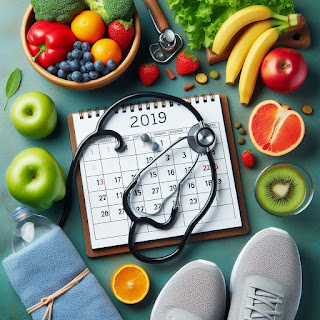Fueling the Heroes: Nutrition Tips for Health Workers on the Frontlines
Fueling the Heroes: Nutrition Tips for Health Workers on the Frontlines
In times of crisis and beyond, our health workers are the unsung heroes who tirelessly dedicate themselves to caring for others. From doctors and nurses to paramedics and support staff, these individuals work long hours in demanding environments, often putting their own well-being on the line to ensure the health and safety of others. As we honor their dedication and sacrifice, it's crucial to recognize the importance of proper nutrition in supporting their physical and mental health. Join us as we explore nutrition tips to help our health workers stay energized, resilient, and nourished on the frontlines of healthcare.
Prioritize Balanced Meals:
With busy schedules and unpredictable work hours, it's easy for health workers to rely on convenience foods or skip meals altogether. However, prioritizing balanced meals is essential for maintaining energy levels and supporting overall health. Encourage them to include a variety of nutrient-rich foods in their diet, such as lean proteins, whole grains, fruits, vegetables, and healthy fats, to ensure they receive the essential vitamins and minerals their bodies need to function optimally.
Stay Hydrated:
Proper hydration is crucial for health workers, especially those working in high-stress environments or wearing protective gear for extended periods. Remind them to drink plenty of water throughout the day to stay hydrated and support cognitive function, mood, and physical performance. Encourage them to keep a reusable water bottle nearby and take regular breaks to rehydrate, even during hectic shifts.
Pack Healthy Snacks:
Long shifts and limited break times can make it challenging for health workers to find time to eat. Encourage them to pack portable and nutrient-dense snacks to fuel their busy days. Options like trail mix, Greek yogurt, string cheese, fresh fruit, nuts, and whole grain crackers can provide quick energy and satisfy hunger cravings without weighing them down.
Manage Stress with Mindful Eating:
Working in high-pressure environments can take a toll on mental health and lead to stress eating or emotional overeating. Encourage health workers to practice mindful eating techniques to help them stay present and make conscious food choices. Encourage them to take short breaks to enjoy their meals away from their workstations, savoring each bite and listening to their body's hunger and fullness cues.
Support Immune Health:
Strengthening the immune system is essential for health workers, especially during times of increased exposure to illness. Encourage them to prioritize immune-boosting foods rich in vitamins C and D, zinc, and antioxidants, such as citrus fruits, berries, leafy greens, nuts, seeds, and lean proteins. Additionally, remind them of the importance of adequate sleep, regular exercise, and stress management in supporting overall immune function.
As our health workers continue to demonstrate unwavering dedication and resilience on the frontlines of healthcare, let us not forget the importance of supporting their well-being, both physically and emotionally. By prioritizing proper nutrition, hydration, and self-care practices, we can help them stay energized, resilient, and healthy as they work tirelessly to care for others. To all the health workers out there, we salute you and thank you for your invaluable service and commitment to keeping our communities safe and healthy. You are the true heroes!









Comments
Post a Comment